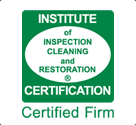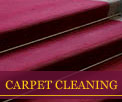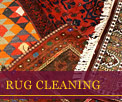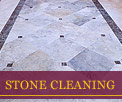Frequently Asked Questions
Help us build our FAQ page! Send your questions to info@ethoscarpetcare.com.
Please click on headings below for more information.
How long does the carpet cleaning process take?
We are able to clean approximately�200 square feet per hour. This can vary slightly depending upon the amount of soil, how much furniture needs to be moved, specialty spotting procedures, and setup time.
How soon can I walk on the carpet?
Try to keep pets, children, and heavy traffic off the carpet during the drying process. Wait 24 hours before removing polystyrene blocks or protective tabs that our technicians have placed under the furniture to protect the carpet. Some carpets may feel slightly damp for up to 8 hours depending on the carpet and soil conditions. This is normal and will not cause any problems.
Do you move furniture?
All of our cleaning packages include moving the majority of furniture in the main living area. (Most companies will charge you extra for this service) Beds, dressers, and heavier pieces are left in place under these pricing structures. Additional charges will apply to move heavier furniture. For liability reasons, we do not move china, entertainment systems, pianos, or other valuable belongings.
What about reoccurring spots?
If a spot returned a day or so after cleaning it may have been oily or sticky and was not completely removed, or "wicked back" due to the nature of the spot, or possibly it's not a spot, but a permanent stain. If a spot wicks back up we will come back to remove it free of charge.
My carpet has bleached or faded spots, can you correct that?
If you have spots or small areas that have been bleached out, they may be spot dyed, depending on the type of carpet fibre.�
Can you fix indentations from heavy furniture?
No guarantee can be made on removing indentations from heavy furniture. In addition to the pile of the carpet being crushed, the backing of the carpet is indented. Heat, moisture, and hand grooming with our equipment may help, but it will take time to release back to normal, if at all. Severe cases may be permanent.
How often should a carpet be cleaned?
No doubt this question has surfaced at one time or another during the years you've owned carpeting. The frequency of cleaning will vary from one household to another depending upon the number of occupants and level of usage. At a minimum, you should clean once a year.
We�have had some homeowners express their fear that once the carpet is cleaned, it will re-soil quicker. This fear is the result of improper cleaning on the part of many cleaning companies. Many of these companies, in an effort to cut costs and save time, will buy the cheapest cleaning solutions, won't provide the proper training for their technicians, and will not offer a separate rinse step in order to remove detergent residues. If detergent is left in the carpet, accelerated re-soiling will occur.�
Ethos Carpet Care�uses a thorough method of cleaning that uses a rinse step after the pre-spray process. This method removes deep down soil and leaves no detergent to accelerate the re-soiling process. The fact is, the best thing you can do for your carpets is have them regularly cleaned by a qualified professional carpet cleaning company. It is the buildup of soil that promotes wear to your carpet, far more than the foot traffic that travels on the surface of the carpet. Foot traffic grinds the soil against the carpet fibres and causes a sand-paper effect. This causes the fibres to dull and become worn looking.
Major carpet manufacturers such as Dupont and Shaw Industries recommend that you have your carpets cleaned every 6-18 months, and with most of today's carpet, in order to satisfy the warranty requirements, you must save receipts from your cleanings. There are other considerations that can increase the frequency of cleanings, such as smoking habits, number and ages of children, soiling conditions, humidity, health status of occupants, allergy conditions, and number and types of pets just to name a few. Heavily travelled areas may require quarterly cleaning, while other less frequented areas may not need cleaning more than every 18 months. Either way, it makes good sense to have your carpets cleaned regularly�not only from an appearance and investment protection point of view, but also from a health standpoint. Regular deep cleaning removes bacteria, dust mites, germs, and the substances upon which these organisms live.
Why should I clean my carpet?
Biocontaminants, volatile organic compounds, combustion products, asbestos, dust mites, chemical contamination, outdoor pollutants, pesticides, allergens, grease and oil deposits, sand, soil, food particles, bacteria, and a host of other really gross stuff will make its way into your carpet. Quite simply, your carpet acts like a sink. It collects and filters all of the above mentioned contaminants. This collection and filtering process traps these contaminants within your carpet, which in turns cleans the air you breathe and allows you to live a healthier life. Hard surface floors may allow contaminants to "roam" throughout the indoor environment.
But like any other filter, your carpet needs to be cleaned on a regular basis, or it will lose its filtering ability. If these contaminants are in your home, they could be contributing to your family's health and allergy problems. Dr. Michael Berry, Deputy Director of the Environmental Criteria and Assessment Office of the Environmental Protection Agency stated, "Based on what I have learned from researchers working in the United States, Canada, and Western Europe, I have reached the conclusion that carpeting and fabrics that are not properly cleaned and maintained have the potential to cause a variety of health problems inside the building and home environment.&rsdquo;
Why should I have my carpets protected?
Carpet Protection helps you in two very important ways:
When this protective coating is applied to the carpet, it puts a protective barrier around each fibre. This protective barrier resists moisture. When you do have a spill, it gives you a window of time to get it cleaned up. The other important way that this product helps you is in the area of wear. Having this protective coating on your carpet helps reduce the wear and abrasion caused by soil in the carpet. This protects the carpet from excessive matting, and in turn will cause your carpet to perform better.








